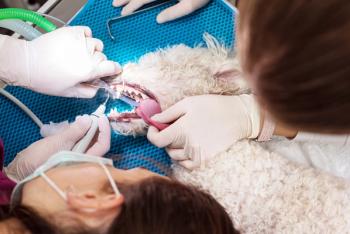
A better understanding of rabies laws and regulations
Here are the essential facts for practicing veterinarians.
While current vaccination guidelines recommend rabies vaccine be administered to ALL dogs and cats, state-level laws and regulations addressing rabies and rabies vaccination vary significantly among individual states and occasionally, even within the states themselves
This is where confusion arises. As a veterinarian, you are expected to be aware of, and comply with, applicable rabies laws and regulations that go beyond simply recommending rabies vaccination in accordance with current guidelines. Failure to follow state and/or local laws can have significant consequences for the individual practitioner.
In my experience, the following 2 significant factors contribute to why a veterinarian might violate legal requirements governing rabies:
- Access to current State or local rabies laws and regulations can be difficult. While some states publish an online Rabies Control Manual, many others do not. Searching the internet for current vaccination and patient management requirements can be time-consuming, difficult, and certainly frustrating.
- When managing a rabies-related issue for an individual patient, there is a tendency to assume the law and act according to that assumption, sometimes incorrectly, and sometimes with serious consequences under state law, including litigation and loss or restriction of license to practice. Never assume the law!
Through personal experience gained as a co-author on canine and feline vaccination guidelines and hundreds of continuing education lectures to veterinarians, I’ve seen firsthand the confusion and challenges resulting from the state-to-state variation of rabies laws and regulations.
The rabiesaware.org website, supported by Boehringer Ingelheim Animal Health, has been developed as an open-source document defining State-level rabies laws and regulations that directly impact patient management decisions required in clinical practice. The information available on the website has been validated at the state level and typically involves a comprehensive review by public health authorities with the respective state.
The FAQ section of the website provides rapid access to 28 rabies-specific laws and regulations for individual states. State surveillance data on rabies for the last four years is included along with contact information in the event further clarification is needed to manage complex cases for which laws or regulations may not have been written. It happens!
How might the website be used in practice? Here are a few examples that will test your awareness of state laws and regulations pertaining to rabies.
While immunity and protection are the expected outcome following the administration of the rabies vaccine, state laws specifically avoid that terminology and refer only to the animal that is, or is not, “currently vaccinated.” In the language of state rabies laws, an animal is deemed currently vaccinated against rabies when the vaccine used:
- Is a USDA (only) licensed rabies vaccine (dogs imported into the US typically must be re-vaccinated with a USDA licensed rabies vaccine within 30 days of entry)
- Was administered by an authorized individual. The meaning of authorized varies significantly from state to state and one should never assume who is or is not authorized
- Was administered at the appropriate age, interval, and dose. Administering half of the indicated dose to a small dog is not consistent with “currently vaccinated,” and it’s illegal to do so.
Does the state in which you practice authorize a veterinarian to issue a rabies vaccine exemption for medical reasons (for example, prior vaccine reaction, chronic kidney disease, etc.)? Most states do NOT authorize exemption authority. Those that do typically require specific compliance measures be adhered to prior to granting an exemption.
What are the consequences for an unvaccinated (versus currently vaccinated) dog or cat that bites a person? What constitutes pet exposure to rabies? Who makes the “exposure” determination? What is your obligation under law if the exposed pet is unvaccinated (versus currently vaccinated)? The answers to these questions, and more, are available on the website.
Of all the vaccines currently licensed for administration to dogs and cats, rabies is the only one that is required under law in most but not all, states. As veterinarians authorized to administer rabies vaccine, it is our obligation to practice within the context of state and local law. It is also our public health responsibility to do so.
Newsletter
From exam room tips to practice management insights, get trusted veterinary news delivered straight to your inbox—subscribe to dvm360.




